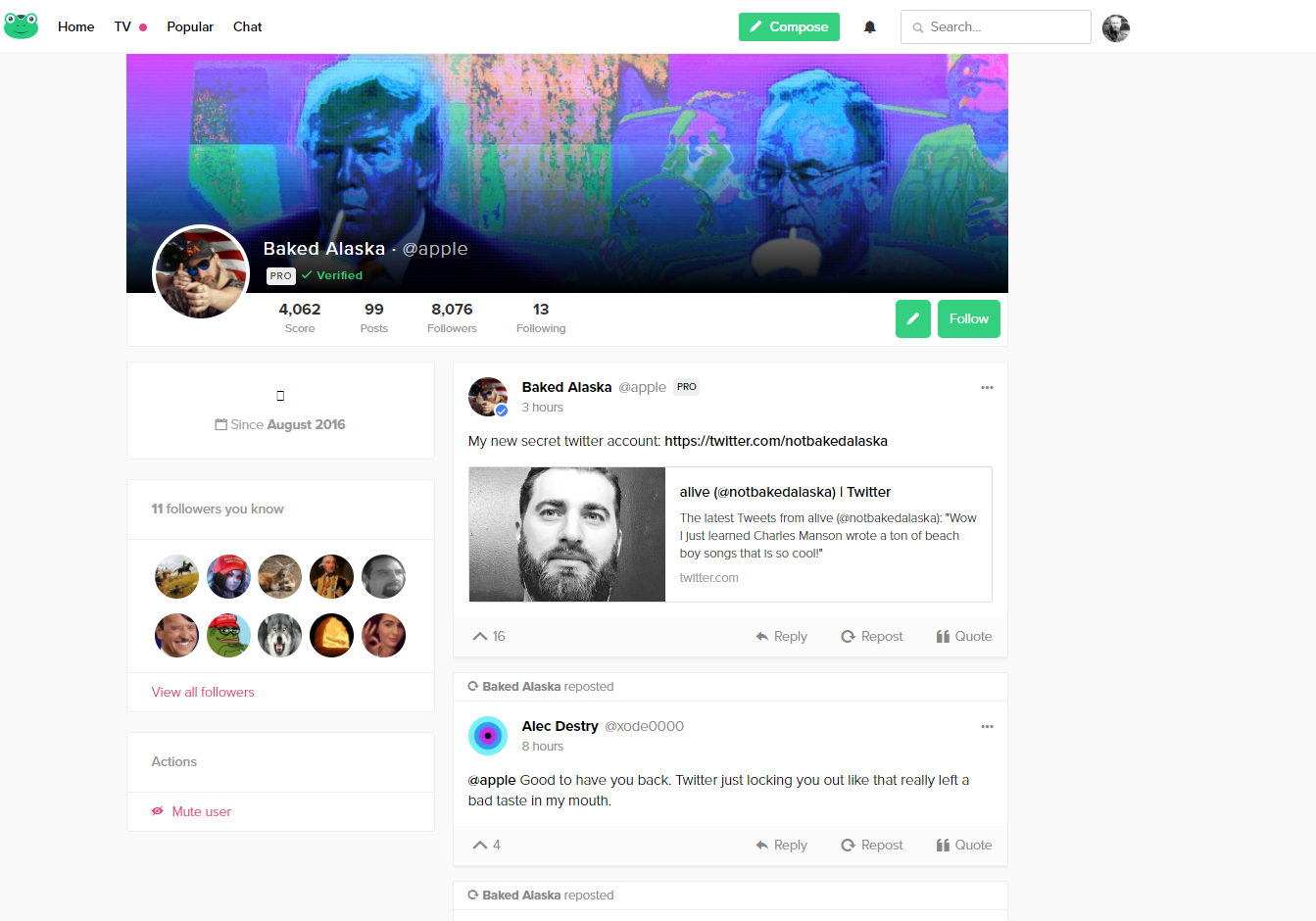After losing his official Twitter account last week far-right troll Tim Gionet, better known as Baked Alaska, was apoplectic. “I just woke up and my Twitter account doesn’t work,” he vented in a nine-hour livestream posted soon after the ban. “I literally have not done anything, I have been an angel, I’ve been reading Bible verses and playing Mario.” On the same day as Baked was permanently banned, several other prominent far-right accounts were also de-verified on Twitter.
Over the weekend it appeared that Gionet found a way back onto Twitter. On Monday morning he advertised a new account @notbakedalaska from his verified page on Gab – a social media site which has proven extremely popular with white nationalists and conspiracy theorists. But it didn’t last long. When asked for comment on his newest account by ThinkProgress, Twitter promptly suspended @notbakedalaska.

For all his bombast, Gionet is a relatively minor player in the ever-shifting landscape of pro-Trump trolls and white nationalists, and has fallen out with several important figures. In September Milo Yiannopoulos, who Gionet previously managed, posted a video mocking his reaction to being pepper sprayed. In Buzzfeed News’ expose on Breibart, Yiannopoulos is revealed to be contemptuous towards Baked. “He is becoming a laughing stock and that reflects badly on me,” he said. “He seems more interested in his career as an obscure Twitter personality than my tour manager.” Gionet’s constant need to livestream everything has also led to several embarrassing encounters, including one where a woman outside a Los Angeles nightclub breaks his phone after Gionet refuses to stop harassing them.
What Baked Alaska’s activities do show is that tech companies are effectively playing whack-a-mole with white nationalists. If they’re banned from one platform, they migrate over to another. In the run-up to Charlottesville for instance, the chat app Discord was extremely popular with white nationalists, using it to share everything from bomb-making manuals to personal details on Antifa members. After the Unite the Right rally, Discord decided to take action and banned several servers which were being used to advocate white nationalist causes. “We will continue to take action against white supremacy, nazi ideology and all forms of hate,” the company said in a statement.
Since then, however, white nationalists have now migrated over to Gab, which is right functioning as “safe space” platform for those who get kicked off more mainstream social media for their racist and anti-Semitic views. In addition to Gionet, Gab users include Richard Spencer, neo-Nazi Andrew Anglin, pro-Trump troll Microchip and Roger Stone. In August Google removed Gab from its Google Play store because it was was a medium “for content that encourages violence and advocates hate against other groups of people.”
Gab’s founder Andrew Torba said yesterday that he’ll be “damned if we let the globalists destroy the free and open web for my children and yours,“meaning that Gab is likely to remain the website of choice for white nationalist for the time being — offering them a space to conspire and trade tips on how to subtly advance their views on Facebook and Twitter. This poses a challenge to efforts to combat a resurgent white nationalist movement.
“Counter-speech measures must go beyond popular social media platforms,” the report read. “They must penetrate alternative platforms and burst extreme-right bubble with campaigns that build on a thorough understanding of internet culture and countercultures.”
